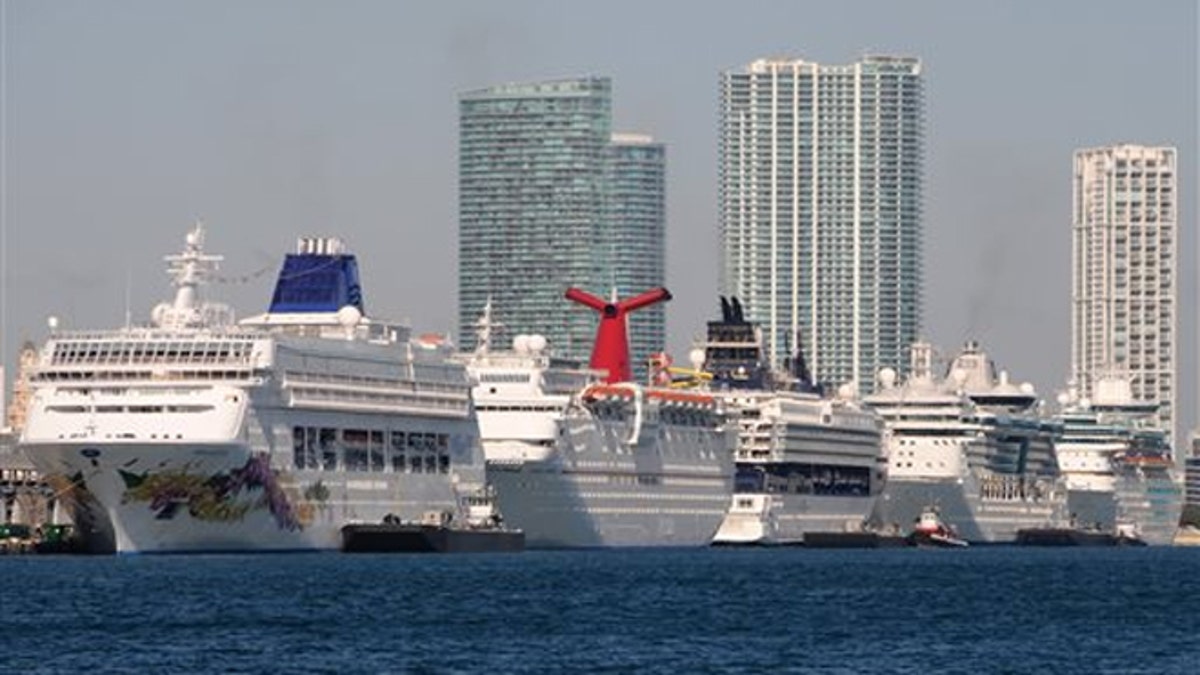
FILE: Five cruise ships are lined up at the Port of Miami, in Miami. (AP)
Carnival Corp. released data about 127 alleged crimes reported on its North America-based cruise lines in the past three years as part of a voluntary effort by several large cruise companies to be more accountable to the public.
Carnival made the data public on its website Thursday night. Royal Caribbean and Norwegian Cruise Line posted data about alleged crimes earlier Thursday. The disclosures were made amid growing pressure from Congress and crime victims for more accuracy about crime at sea.
The Carnival data covers the period between July 27, 2010, and June 30, 2013, when ships from four Carnival Corp. brands — Carnival Cruise Line, Holland America, Princess and Seabourn — carried more than 77 million people. The alleged crimes included five reports of suspicious deaths, 38 reports of rape and 20 alleged thefts over $10,000.
Royal Caribbean and Norwegian on Thursday reported 94 crimes and 20 crimes, respectively, between Oct. 2010 and the end of June this year.
The data includes reports of homicide, suspicious death, missing U.S. persons, kidnapping, assault with serious bodily injury, rape and other sexual assaults, tampering with a vessel and thefts over $10,000. Before Thursday, the public only had access to U.S. Coast Guard crime figures for cases in these categories investigated by the FBI.
Since January 2011, the Coast Guard has publicly reported only 31 such crimes aboard cruise ships, according to the Senate Commerce Committee. Though the data from the cruise lines showed many more alleged crimes were reported to security personnel than had been previously disclosed in the Coast Guard data, the numbers are still minuscule compared with the millions of people who cruise each year and average crime rates in the general population.
Cruise industry officials noted that the numbers released Thursday only reflect allegations, not whether investigators concluded that a crime had actually been committed, cruise line officials said. Carnival spokesman Roger Frizzell said in an email that "the majority of these are never substantiated as actual crimes after the initial investigation."
